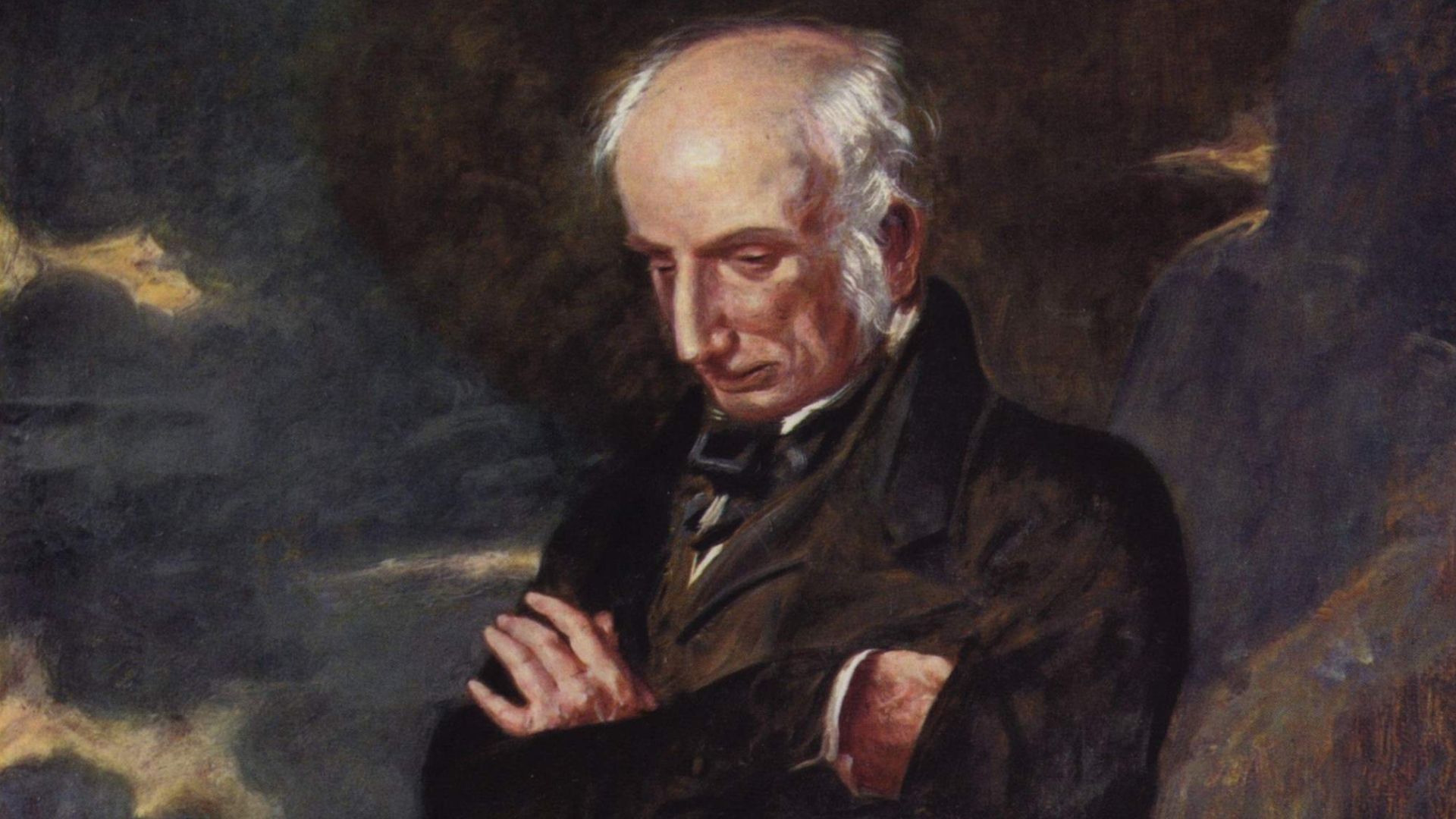The Simplon Pass Poem by William Wordsworth
The Simplon Pass
------Brook and road
Were fellow-travellers in this gloomy Pass,
And with them did we journey several hours
At a slow step. The immeasurable height
Of woods decaying, never to be decayed,
The stationary blasts of waterfalls,
And in the narrow rent, at every turn,
Winds thwarting winds bewildered and forlorn,
The torrents shooting from the clear blue sky,
The rocks that muttered close upon our ears,
Black drizzling crags that spake by the wayside
As if a voice were in them, the sick sight
And giddy prospect of the raving stream,
The unfettered clouds and region of the heavens,
Tumult and peace, the darkness and the light--
Were all like workings of one mind, the features
Of the same face, blossoms upon one tree,
Characters of the great Apocalypse,
The types and symbols of Eternity,
Of first, and last, and midst, and without end.
I wish more lines were included in this excerpt, for the three parts of the passage taken together are a gripping, dramatic presentation of vision and intellectual blindness. But I want this section of The Prelude, for sure, to be included among my favorite poems of all time; hence, I am designating this brief excerpt as a 'favorite.' It's hard to imagine lines that better capture Characters of the great Apocalypse, The types and symbols of Eternity, Of first, and last, and midst, and without end. |
This poem has not been translated into any other language yet.
I would like to translate this poem
The entire Simplon Pass passage (which is echoed in the Snowden passage toward the end of 'The Prelude') has three major parts: (1) WW and his friend are crossing the Alps; they stop for lunch; their party goes on, but WW and his friend linger; when they proceed they soon realize that they must be lost, for they do not overtake their companions; a peasant they meet assures them again and again that they have 'already crossed the Alps. They had crossed the Alps before lunch without even knowing it. (2) They are chagrined. A melancholy sets in. WW interrupts his narrative at this point and comments on the mind, disappointed in the loss of satisfying sense impressions: Imagination- here the Power so called Through sad incompetence of human speech, That awful Power rose from the mind's abyss Like an unfathered vapour that enwraps, At once, some lonely traveller. I was lost; Halted without an effort to break through; But to my conscious soul I now can say- I recognise thy glory: in such strength Of usurpation, when the light of sense 600 Goes out, but with a flash that has revealed The invisible world, doth greatness make abode, There harbours; whether we be young or old, Our destiny, our being's heart and home, Is with infinitude, and only there; With hope it is, hope that can never die, Effort, and expectation, and desire, And something evermore about to be. Under such banners militant, the soul Seeks for no trophies, struggles for no spoils 610 That may attest her prowess, blest in thoughts That are their own perfection and reward, Strong in herself and in beatitude That hides her, like the mighty flood of Nile Poured from his fount of Abyssinian clouds To fertilise the whole Egyptian plain. This is one of the highlights of the passage, and one of WW's most powerful statements about the poetic Imagination - a Coleridgean imagination, by the way, rather than the more common Wordsworthian apprehension of 'the correspondent breeze' - nature and the language of the sense, fulfilling one another. When he refers to it as that 'awful Power, ' we might more likely say that awesome Power: 'our being's heart and home, [that[ Is with infinitude, and only there.' (3) What follows is the section of the Simplon Pass passage that is excerpted by PH. The feelings of melancholy precipitated by the peasant's news soon pass, and they are once again absorbed by the environment, by Nature. ..... Downwards we hurried fast, And, with the half-shaped road which we had missed, 620 Entered a narrow chasm. The brook and road Were fellow-travellers in this gloomy strait..... The brook and road (nature and man's creation) are parallel; furthermore, they are 'fellow-travelers' with WW and his friend. Soon sense impressions begin to overwhelm them once again; e.g., 'The immeasurable height / Of woods decaying, never to be decayed, / The stationary blasts of waterfalls.' Notice how these images reflect opposites: time and the timeless (decaying, never to be decayed) , motion and motionlessness (waterfalls, stationary blasts) . Notice, too, what fine metaphors these would be for Coleridge's 'reconciliation of opposites, ' the focal point of his Imagination: The concluding lines bring the process full circle: the failure of sense perceptions and the consequent sense of loss, the poet's realization of the Power of the Imagination, working in an abyss, and finally (and most grandiloquent) the union of sense (Nature) and the human Imagination: 'all like workings of one mind, the features / Of the same face, blossoms upon one tree, / Characters of the great Apocalypse....' The triumph of 'The Prelude' as a whole, and especially this section, is that WW accounts for the workings of the poetic in poetry that itself illustrates the achievement of such imaginative processes. Thus, he simultaneously explains and exhibits what he means.